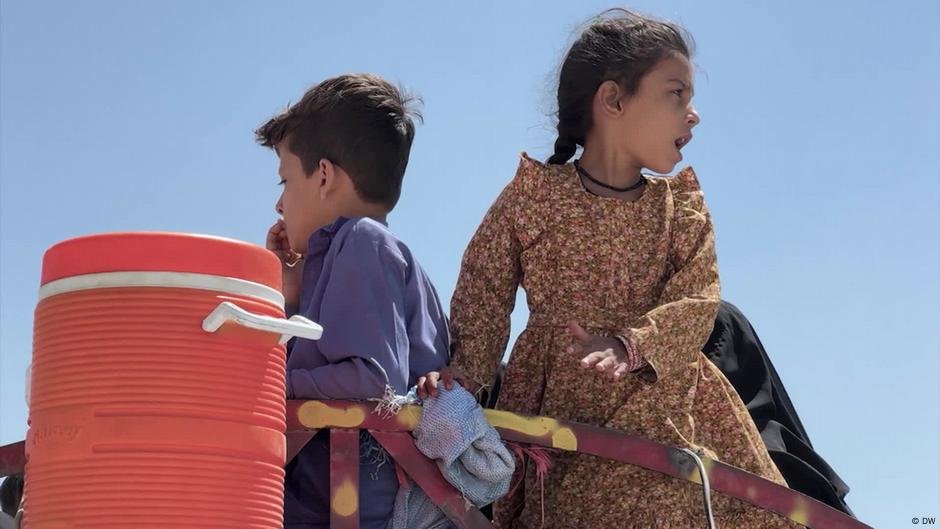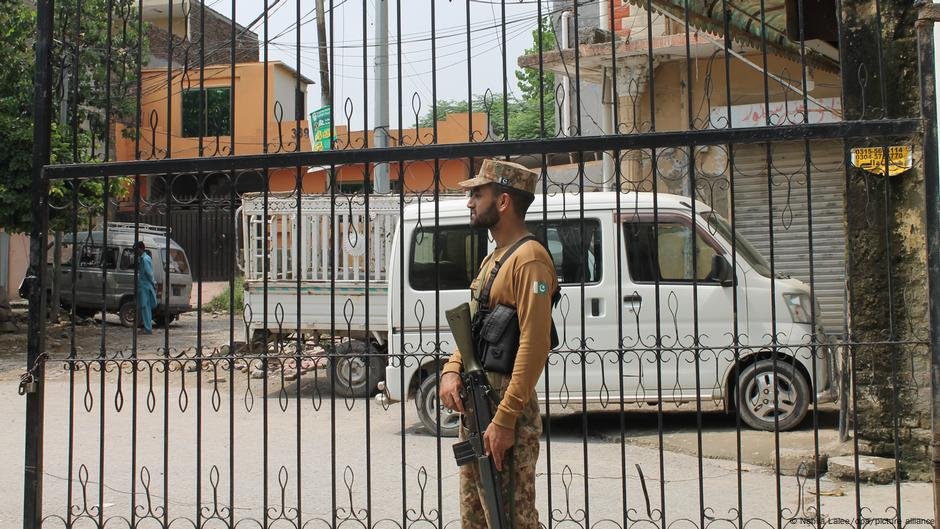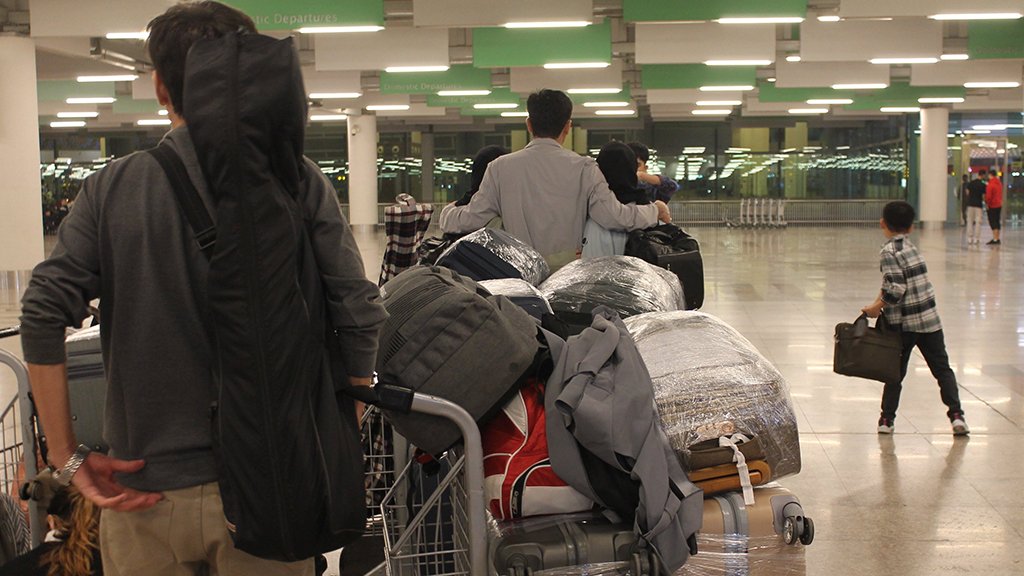As Pakistan continues to deport Afghans en masse, Germany is proposing cash to some Afghans, in Pakistan and waiting for evacuation to Germany, as part of a "voluntary return" process. Those affected say the offer puts their lives at risk, but worry about the prospects of ever reaching Germany after so long waiting.
Nearly 2,000 Afghans who were promised protection by Germany have been left waiting for months or even years, stranded in Pakistan or hiding from the Taliban in Afghanistan. In the midst of this uncertainty, the German Interior Ministry has taken an unexpected step that has sparked anger and fear -- offering cash to people like 29-year-old Mohammad if they agree to withdraw from the program and return to Afghanistan.
Mohammad, who does not want his surname or exact location published for security reasons, has only a few days left. On November 17, the deadline set by the ministry will expire. By then he must decide whether to continue hoping for relocation to Germany, or whether he and his four siblings should accept the 11,500 euros in "start-up aid" offered to them by the German government.
The offer has shaken him deeply. He told the German Protestant news agency EPD: "If one of my family members is beheaded by the Taliban, what value would this money have for me?" He says he only wants to live in safety, without constant fear of arrest.
Read AlsoAfghan nationals offered cash to withdraw from Germany's admission program
Not fleeing poverty, but violence and death
Mohammad is among around a third of Afghans in this program who received a letter last week on behalf of the German Interior Ministry offering several thousand euros to withdraw from the humanitarian admission program.

Those affected have sent a joint letter to Chancellor Friedrich Merz, criticizing the move and emphasizing serious safety concerns:
"We all have an official admission pledge from the German government and have been waiting for months and years under its protection in Pakistan and Kabul for our evacuation. We are now painfully learning that the new German government is trying in ever new ways to end the promised process -- regardless of the fact that this puts our lives in acute danger of death and violence."
They continue:
"We are not fleeing from poverty, but from violence and death. Among us are mothers whose children tremble with fear when someone knocks on the door at night; fathers who were tortured in Taliban prisons; daughters who have been deprived of their right to education."
Many say the German government's offer feels like a betrayal. They describe it as "incomprehensible and hurtful," and say it gives them the feeling that their lives "mean nothing more than a sum of euros."
Read AlsoAfghan migrants stuck in Pakistan reject German cash offer
Threatened once again
Mohammad belongs to the Hazara minority and, as a human rights activist, has spoken out against the Taliban and organized protests. He recalls: "I received threatening calls from the Taliban and had to move several times." For two years he lived in hiding, unable to work. Now the family's savings are exhausted.
When the new government took office in Berlin, conditions for Afghan evacuees deteriorated again. The former coalition had issued admission pledges, but the conservative-led Merz government announced in its coalition agreement that it intended to end the programs "as far as possible." Almost immediately, departures slowed to a halt. At the same time, Pakistan resumed deportations -- and about 200 Afghans with valid German admission commitments have already been sent back.

UN agencies estimate that Pakistan has deported more than 1.5 million Afghans since 2023, creating additional pressure on those waiting for relocation to Germany.
Some deported Afghans warn they are now at even greater risk. They have reported that Pakistan's intelligence service questioned them about whether they planned to accept Germany's money -- a process that could expose them to new threats both in Pakistan and under Taliban rule in Afghanistan.
Organizations of jurists have condemned the German government's offer as "morally shameful, politically disastrous, and a rule-of-law scandal."
Read AlsoPakistan ramps up Afghan migrant crackdown after clashes
Germany steps up deportations
Germany has also stepped up deportations of Afghan nationals, signaling a tougher migration stance. In January 2025, Berlin expressed concern over Pakistan’s deportations of Afghans -- including those approved for German relocation. By July 2025, under the new government, Germany deported 81 Afghans on a charter flight -- the first such return under the Friedrich Merz-led administration. The policy underscores a shift from prioritizing humanitarian admission to pairing it with stricter removal measures.

German authorities say they will prioritize the return of Afghans convicted of serious crimes, and negotiations with Kabul aim to make such returns "regular" rather than one-off. The issue is not only about returns -- Germany currently lists about 11,500 Afghans as required to leave. The dual pressures of relocation delays and rising deportation risks mean that many of the 2,000 evacuees waiting in Pakistan or Afghanistan feel that their ambivalent status gives them no safe path forward.
Read AlsoEU confirms 'contact' with Taliban in Afghanistan over migrant returns
Courts as the last lifeline
Because the German Interior Ministry only wants to process cases in which the admission pledge is considered "legally binding," many Afghans are forced to turn to the courts, to gain recognition for their claims. Mohammad filed a lawsuit at the Berlin Administrative Court -- and won. But his lawyer Junis Mustafa warns: "It is expected that Germany will appeal."

Several similar cases are currently before German courts, including the Federal Constitutional Court.
Some Afghans have been allowed to enter Germany after favorable court rulings -- around 130 since May -- but this remains a small minority.
Read Also Third group of Afghans fly to Germany from Pakistan
'Equivalent to a slow death'
Mohammad worries most about his younger siblings. The youngest, Zahra, is just 14; since the Taliban took power, she has not been allowed to attend school. Germany's broken promise weighs heavily on him:
"Why does a country that sees itself as a defender of human rights not keep its promises and now itself violates the rights it protects in its constitution?" he asks.
He intends to reject the Interior Ministry's offer. Returning to Afghanistan, he says, is unimaginable:
"Returning to Afghanistan and living in hiding is equivalent to a slow death -- without water, without food, without the essentials needed to survive."
Pakistan has given Germany until the end of the year to resolve the cases, but the German government no longer believes it can meet the deadline. Meanwhile, the nearly 2,000 Afghans waiting -- human rights activists, judges, journalists, and families -- are appealing to Germany to honor its commitments before more lives are endangered.
Read AlsoUN warns of difficult winter ahead for migrants as aid cuts bite
With epd
